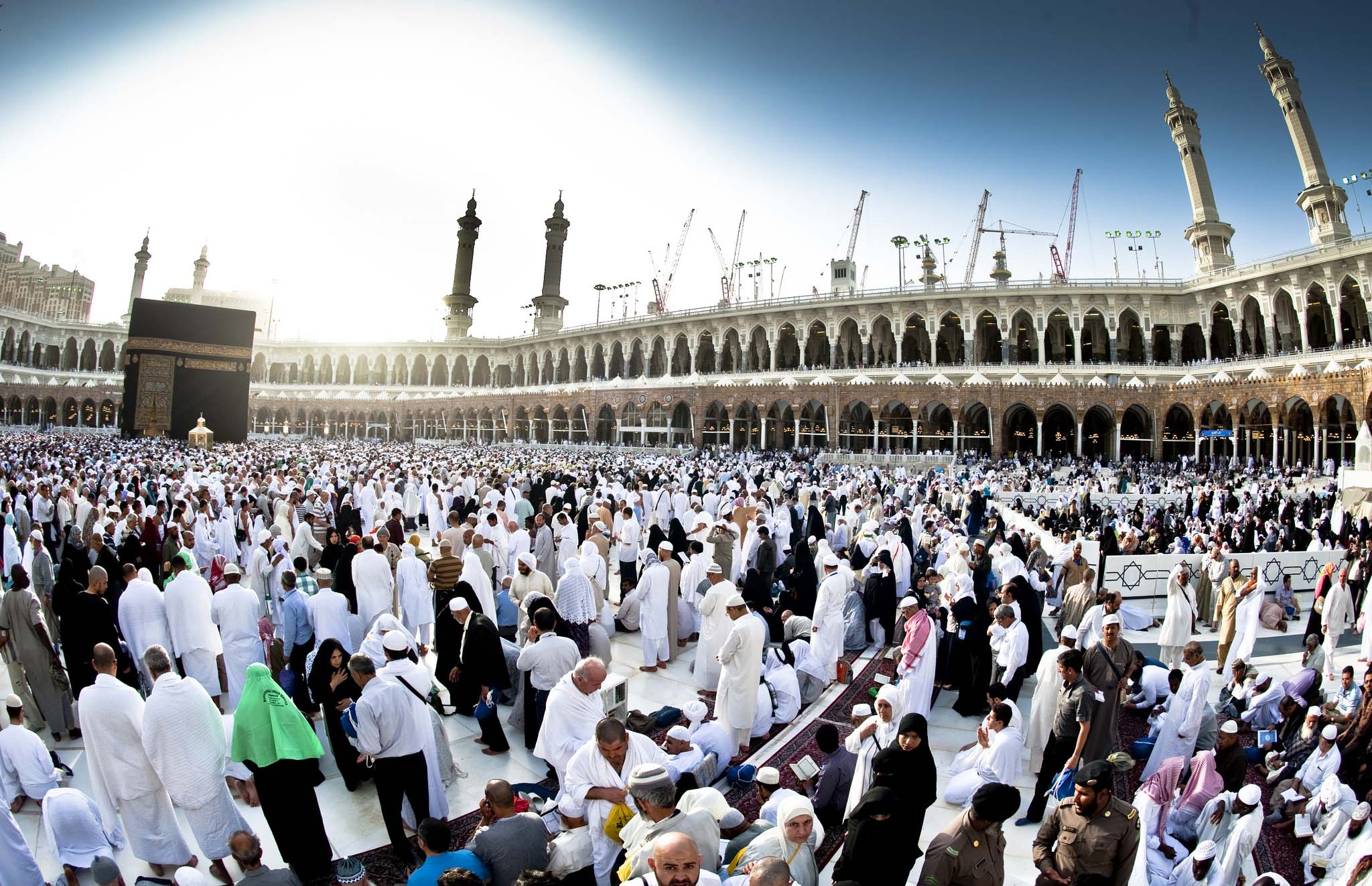This year, Muslims around the world will observe the sacred Day of Arafah on Friday 8th July and Eid Al Adha on the 9th.
A Muslim pilgrim who made his way to Saudi Arabia on foot to take part in the annual Hajj has arrived in Mecca for the largest pilgrimage of its kind since the onslaught of the coronavirus pandemic enforced a global standstill.
This year, authorities set a limit of just one million pilgrims, almost half the usual annual number seen before the Covid-19 pandemic.
For pilgrims, travelling historic routes by foot to Mecca symbolises devotion to faith. One such devoted believer is Iraqi-British pilgrim Adam Mohammed who walked for almost a year before finally arriving in Mecca last week.
The 52-year-old pilgrim walked through the Netherlands, Germany, the Czech Republic, Hungary, Romania, Bulgaria, Turkey, Lebanon, Syria, and Jordan to reach Saudi Arabia, covering a distance of approximately 6,500 kilometres in 11 months and 26 days.
“I would feel mentally exhausted, unable to eat or drink too. But then something inside me would tell me: ‘What are you afraid of? You have God by your side and you can make it,” the dedicated Muslim said.
Mohammed started his journey from Wolverhampton, United Kingdom on 1 August 2021 and walked an average of 17.8 km daily. He reached Aisha Mosque in Mecca on 26 June and was met with huge crowds, including pilgrims, local residents, and his two daughters who had flown from the United Kingdom to welcome him in the holy city.
The pilgrim had a homemade cart weighing up to 250 kilos to carry his personal belongings.
“Actually, I built it myself. It is where I ate, slept, and cooked for the journey,” Arab News quoted him as saying.
“I have lived for 53 years for myself, why can’t I dedicate 10 or 11 months to God?”
10 days leading up to Eid Al Adha
Hajj marks a crucial time of the year for Muslims and is performed between the 8th – 12th Dhul Hijjah – the last month of the Islamic lunar calendar.
The Hajj pilgrimage is one of the main five pillars of Islam and is an obligation on Muslims to perform at least once in their lifetime, only if they are physically and financially capable of doing so.
Eid Al Adha lies on the 10th of the Islamic calendar, Dhul-Hijjah, the conclusion to what is believed to be “the best days” of the Islamic year.
The sacred and virtuous days, however, do not begin with the first day of Eid, instead it starts with the nine days prior, and particularly the ninth day which is known as the Day of Arafah.
This year it falls on 8 of July .







